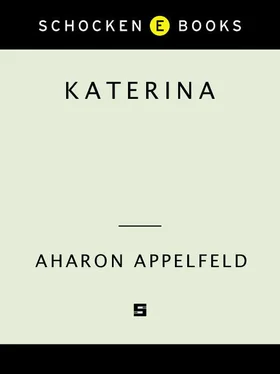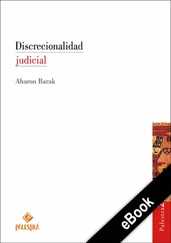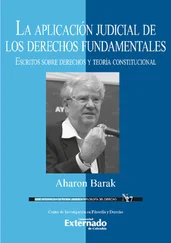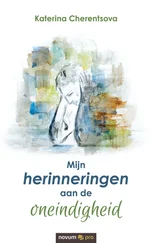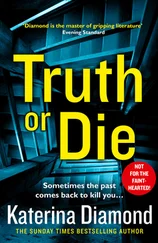For entire days I am alone. I light the stove, and the smell of the wood on the fire brings me back to the scattered regions of my life. Again I am in Strassov, the orphans are with me, everyone deep in mourning, and no one comes to visit. A moist silence swaddles us together on the floor. At night hooligans run riot in the street and shout: “Death to the merchants, death to the Jews.” Weiss’s leather shop has been smashed open all along the front, the merchandise stolen, but the smell of leather remains and wafts up from it. The odor drives me out of my mind.
The last days, I felt, had changed me. A kind of trembling coursed through my fingers, and I knew that if one of those toughs broke in, I’d deal with him the way my father would have. I wouldn’t hesitate to stick a knife into him. Nevertheless, I decided that I wouldn’t test myself. I gathered up a few clothes and, without asking anyone’s permission, set out for the country with the boys.
Two pale Jews were standing next to the wall of the house. Fear had congealed on their faces and on their long coats. “Why don’t you clear out?” I pleaded. My cry didn’t make them budge. They looked like sick animals, sunk and hypnotized in the slumber of death.
I reached the village at noon. A small village, clinging to the hilltops, not like my native village, where the houses sag in the valley and the mud. Here the hills smile, the ravines are broad and open, and the snow reclines calmly, bright and soft.
Right away I rented a house, a low house, made of thick wooden beams, topped with a thatched roof. “The windows are wide but well sealed; there’s plenty of wood for heat,” said the landlord, happy at the unexpected deal.
“Were there riots here?” I asked.
“Nothing. Its been a normal winter.”
The children slept, and I secretly burrowed into their sleep. I went out for supplies only once a week. I was careful not to eat nonkosher food, promising Rosa I would watch over the boys so that not a speck of impurity would cling to them. In my heart I knew it was a false promise. Ruthenianism prevailed over everything here, over me too. The sight of winter captivated me with its charms. What could I do? “What shall I make?” I asked, and in my heart I knew that everything here—the stove and the dishes, the bread and the oil, every inch of the floor, the smell of linen, everything, even the bedclothes—was tref .
“What shall I make?” I asked again.
“It doesn’t matter,” said Abraham, the elder, relieving me from my hesitations.
Thus began our life here. It was a long winter, most of which we spent in the broad peasant bed. The stove roared and released its heat into the thin darkness. The boys quickly discovered the pleasures of the Ruthenian language. At first they spoke hesitantly, but later they became accustomed to it. I answered them in Yiddish and warned them in a voice not my own that they must retain their language and that forgetfulness was very powerful here.
The winter deepened and left me speechless. Vodka would draw me out of my silence for a moment. I didn’t drink a lot, but the little that I sipped rooted out fear and restored words to me. I spoke with the boys about the need to be strong and to strike at the wicked without fear. I knew there was a flaw in my speech, but I couldn’t hold my tongue. My bold mother, my bitter mother, was speaking from within me. That winter, may God forgive me, I loved the children and hated the Jews. And if I fed them tref , I meant only to strengthen them. One evening I showed them the butcher knife and told them that it was our weapon in times of trouble. We mustn’t fear. Against the wicked one must struggle with all one’s might. I was drunk, of course.
The warm winds came early and imperceptibly crumbled the mountains of snow. Masses of ice fell into the ravines and smashed with deafening thunder. At night the house shook. I knew it was a sign from above, but I didn’t know its meaning.
Before long, spring rose from the dead snow. It was a muddy, damp spring, kneaded together as though by itself. These labor pains lasted a month, and finally the fog expired and the sun bathed the house and the yard in warm light.
The boys worked with me in the vegetable beds. The sun beat down pleasantly from the early morning hours till dark. The day would slip by in the wink of an eye. At night I would cook mamaliga with cheese, a bowl of milk, and hard-boiled eggs. Our appetites were strong, the touch of darkness was pleasant, and sleep was deep.
The boys grew taller and their skin tanned. In my heart, I knew that Rosa wouldn’t be happy at the sight of her boys in the vegetable garden. But I, or rather the evil spirit within me, said: You must be sturdy. Sturdy people give back blow for blow. Frightened Jews arouse the devils.
In those summery expanses a person easily becomes addicted to the sights, the pleasant water, and the flat, soft grass. My life was limited, but it was full of strength. At night I would collapse beside the boys, and my hand seemed to want to make the sign of the cross. I knew that something wasn’t right, but what exactly was wrong, I didn’t know. The children grew forgetful together with me. The days grew longer, and at night we used to sit on a ledge and gobble watermelons.
During that long, marvelous summer, may God forgive me, I forgot Rosa more than once. I didn’t remind the boys about their duties and I didn’t insist that they pray. After a day of work they would race over the hills like the peasants’ children. Often, I sinned by lying. I promised them that one day we would return to the city and the Jews. They didn’t ask many questions, and I didn’t offer any answers. I knew—at every moment I knew—that this pleasure wouldn’t last long, but I ignored evil thoughts and fears. I worked in the field. I washed. I ironed. I was sure, in my innocence, that those deeds had the power to hide me from evil eyes.
While the summer was at its height, as in the midst of a nightmare, Rosa’s sister-in-law appeared, a broad, sturdy woman, accompanied by two Ruthenian thugs. She stood at the door of the cabin, and my body froze. “Where have you been?” she addressed the boys as if I didn’t exist. The boys were dumbstruck. Then she addressed me, and with a voice I hadn’t heard since my mother died, a mixture of anger and choking, she said: “Why did you kidnap the children? It’s forbidden to kidnap children. Everybody trusted you. And this is the reward we get?”
Blood boiled in my veins, but my words were stifled. It was like long ago in the field, when my mother would ambush me and beat me till I bled. This time it wasn’t a hand striking me but a mouth. She immediately turned to the boys with a false smile and said, “We haven’t forgotten you. We’ve been looking for you everywhere. We’ve searched every nook and cranny.” The boys didn’t utter a word. They drew near and huddled close to me, their closeness freeing me from my silence. I opened my mouth and said, “Why are you making false accusations against me? I’ve watched over the boys. Rosa’s sons are as dear to me as my own children. Let the boys speak for themselves!”
The boys remained at my side and trembled.
She ignored me. “Don’t you recognize Aunt Frantzi?” she said to the boys in a thick, discordant voice.
I was immobilized, like in a dream. Everyone seemed taller and stronger than I. I turned to the husky Ruthenians and said: “Don’t believe her. She’s leading you astray.”
“Kidnapper. Keep quiet!” She heard me and roused herself.
“Damn you!” The sound escaped from within me.
The Ruthenians approached me and told me that the Jews were paying them six thousand in cash for every missing person they located. “What do you need those boys for? We’ll give you a new coat and galoshes from Germany.” They spoke to me in my language, like brother to sister.
Читать дальше
